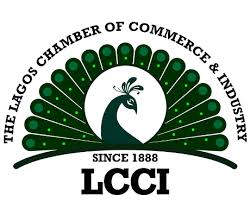The Lagos Chamber of Commerce and Industry (LCCI) has commended the Federal Government for enacting four transformative tax reform laws aimed at simplifying Nigeria’s tax system and strengthening its economic foundation.
The newly signed legislation includes:
- Nigeria Tax Bill (Ease of Doing Business)
- Nigeria Tax Administration Bill
- Nigeria Revenue Service (Establishment) Bill
- Joint Revenue Board (Establishment) Bill
Passed after extensive stakeholder consultations, the reforms mark a critical milestone in building a transparent, efficient, and growth-aligned fiscal framework, according to a statement issued by the LCCI.
From a macroeconomic lens, LCCI noted that the reforms will influence inflation, trade competitiveness, tax compliance, and investor confidence.
Short-term adjustments may push core inflation up by 40–60 basis points as businesses reprice. However, a medium-term reduction in tax inefficiencies and a shift from monetary financing to sustainable revenue sources is expected to relieve price pressures. The FG’s fiscal outlook targets headline inflation dropping to 15% by end-2026, compared to 27.6% in May 2025. Exemptions for essential goods and services from VAT are also expected to ease the cost of living.
The unified tax filing system and reduced compliance time—projected to drop by up to 40%—will boost Nigeria’s trade competitiveness, especially under the AfCFTA. A streamlined tax process is also seen as a magnet for foreign direct investment (FDI), which stood at only $29.83 million in Q4 2024.
In terms of tax compliance, Nigeria’s 7.9% tax-to-GDP ratio—one of the lowest in sub-Saharan Africa—could improve significantly. With measures like a single taxpayer ID, risk-based audits, and a Tax Ombudsman, LCCI projects an increase of ₦3.2 trillion in non-oil tax revenue by 2027, raising the tax-to-GDP ratio to 12%.
“These reforms offer the predictability and transparency investors crave,” said the LCCI, citing the creation of the independent Nigeria Revenue Service (NRS) and digital platforms for performance reporting as key credibility boosters.
However, the chamber emphasized that legislation alone is not enough. It called for a clear implementation roadmap, starting with pilot e-tax systems in Lagos, Rivers, and Kano, and urged intergovernmental collaboration and private sector feedback mechanisms for success.
LCCI also lauded the efforts of the Presidential Fiscal Policy and Tax Reforms Committee, noting that its broad engagement strategy set the right tone for policy consensus. With full implementation set for January 2026, the chamber urged stakeholders to use the next six months for testing and readiness.















